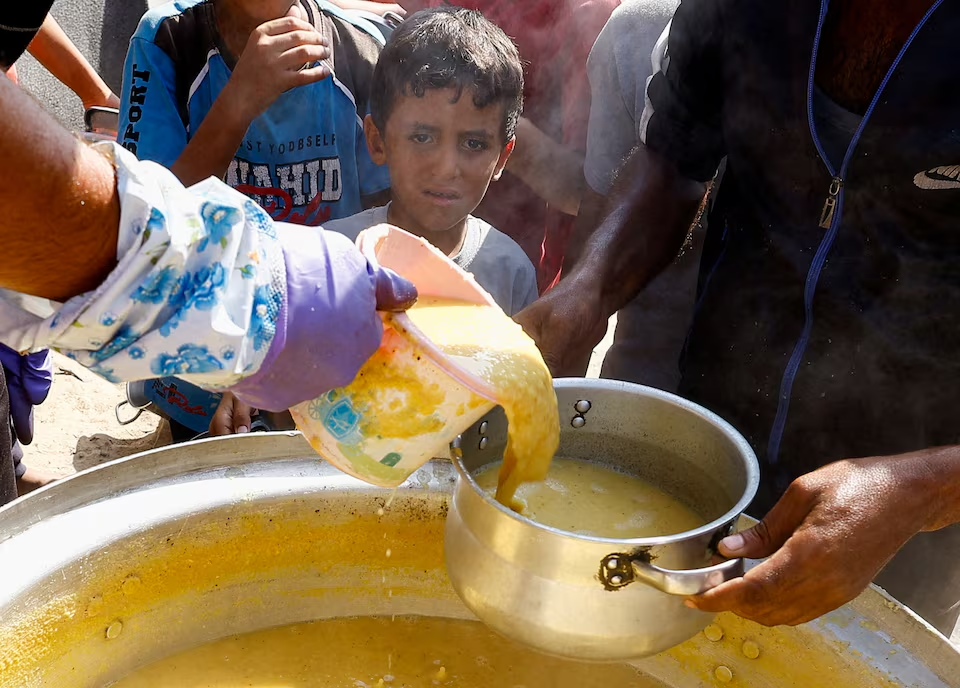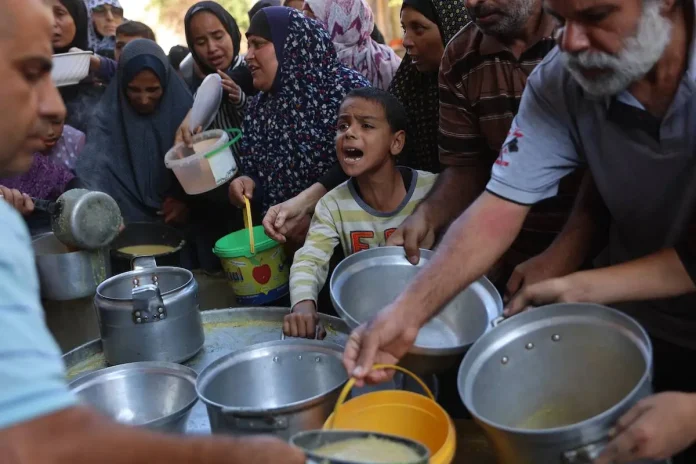Israel has stopped processing requests for food imports to Gaza, effectively shutting down a key commercial track that had supplied over half of the Palestinian territory’s food in the past six months. According to multiple sources involved in the trade, this critical supply chain has been blocked since October 11, causing the flow of goods to plummet to the lowest levels since the start of the war.

Prior to the halt, Gaza-based traders had been importing food from Israel and the Israeli-occupied West Bank through a system managed by Cogat, the Israeli government body responsible for overseeing aid and shipments. Traders report that their attempts to contact Cogat since the import system was cut off have gone unanswered, leaving businesses and residents scrambling for resources. Official data analyzed by Reuters reveals that shipments to Gaza, including aid and commercial goods, have dropped drastically. The average number of daily trucks entering Gaza has fallen from 175 between May and September to just 29 in the first half of October.
Cogat has not commented on the suspension of food imports, though it has denied that Israel blocks humanitarian aid from entering Gaza. The agency has insisted that it is doing everything possible to ensure sufficient aid reaches the enclave. However, sources close to the situation claim that Israel’s concern over the potential for Hamas to generate revenue from commercial imports may be behind the decision to stop the flow of goods. Hamas has denied any involvement in siphoning off food or using it for financial gain.

This closure of commercial imports coincides with Israel’s intensified military operations against Hamas in northern Gaza, further complicating humanitarian efforts. The United Nations’ World Food Programme (WFP) reported that Israeli military activity had cut off aid deliveries in the north for at least two weeks, compounding the existing food crisis. Earlier measures introduced by Israeli authorities, including stricter customs regulations, had already reduced the volume of food entering Gaza through both commercial and aid channels.
The steep decline in food shipments has raised alarm among international observers, with the United States threatening to withhold military support to Israel if the blockade continues. The risk of famine in Gaza has become an urgent issue, prompting global food security monitors to issue fresh warnings. The Integrated Food Security Phase Classification (IPC) warned that recent hostilities could lead to a doubling of the number of people facing “catastrophic” hunger in Gaza.

Before the war, commercial imports played a crucial role in supplying Gaza’s 2.3 million residents with fresh produce and other essential goods. In the absence of this commercial lifeline, the cost of remaining food supplies has skyrocketed. Residents like Ibrahim Baraka from southern Gaza report paying exorbitant prices for basic goods, such as $15 for a kilo of onions. Such reports have been corroborated by multiple residents, traders, and aid workers.
Israel had resumed limited commercial imports in May, after initially blocking goods at the start of the war. This system allowed Gaza-based businessmen to submit import requests through Cogat, bringing essential products into the enclave. However, from the outset, the system was beset by problems. Traders frequently complained of high transport costs, looting, and a lack of transparency in the approval process. Many importers hiked prices to cover protection fees for their shipments, making goods unaffordable for much of the population.
Additionally, the limited number of traders allowed to participate in the import process exacerbated the crisis. Sources told Reuters that priority was given to a small group of around 20 traders, who were able to resell import permissions to smaller businesses for significant sums. Recent changes to Cogat’s import request system, including a September rule requiring traders to prove annual turnovers of at least $4 million, further restricted access.

The suspension of imports comes at a time when international criticism of Israel’s handling of the Gaza crisis is intensifying. The International Criminal Court (ICC) has been investigating allegations that Israel has used “the starvation of civilians as a method of warfare.” Israel has rejected these accusations and challenged the ICC’s jurisdiction. In response to recent criticism, Cogat stated that Israel had allowed dozens of aid trucks to enter Gaza, though the agency did not provide detailed information.
Before the conflict escalated, around 500 trucks carrying a mix of aid and commercial goods entered Gaza daily. The sharp decline in deliveries has left humanitarian agencies scrambling to meet the needs of the displaced population. The United Nations has tried to maintain aid routes through Egypt and Jordan, but ongoing military operations have severely hampered these efforts. Aid deliveries through Egypt have slowed since Israel’s assault on Rafah in May, while shipments via Jordan to Gaza’s northern crossings have also stalled.

Despite Israel and the UN reportedly reaching a compromise on a customs rule that had complicated aid deliveries, fighting in northern Gaza continues to disrupt the flow of goods. Data shows that only an average of two trucks per day were able to deliver aid from Jordan to Gaza during the first two weeks of October, a significant drop from previous months.
As the crisis in Gaza worsens, international organizations are pressing for immediate action to prevent widespread hunger. However, with commercial imports down to a trickle and aid deliveries severely hindered, the outlook remains dire for Gaza’s residents.




